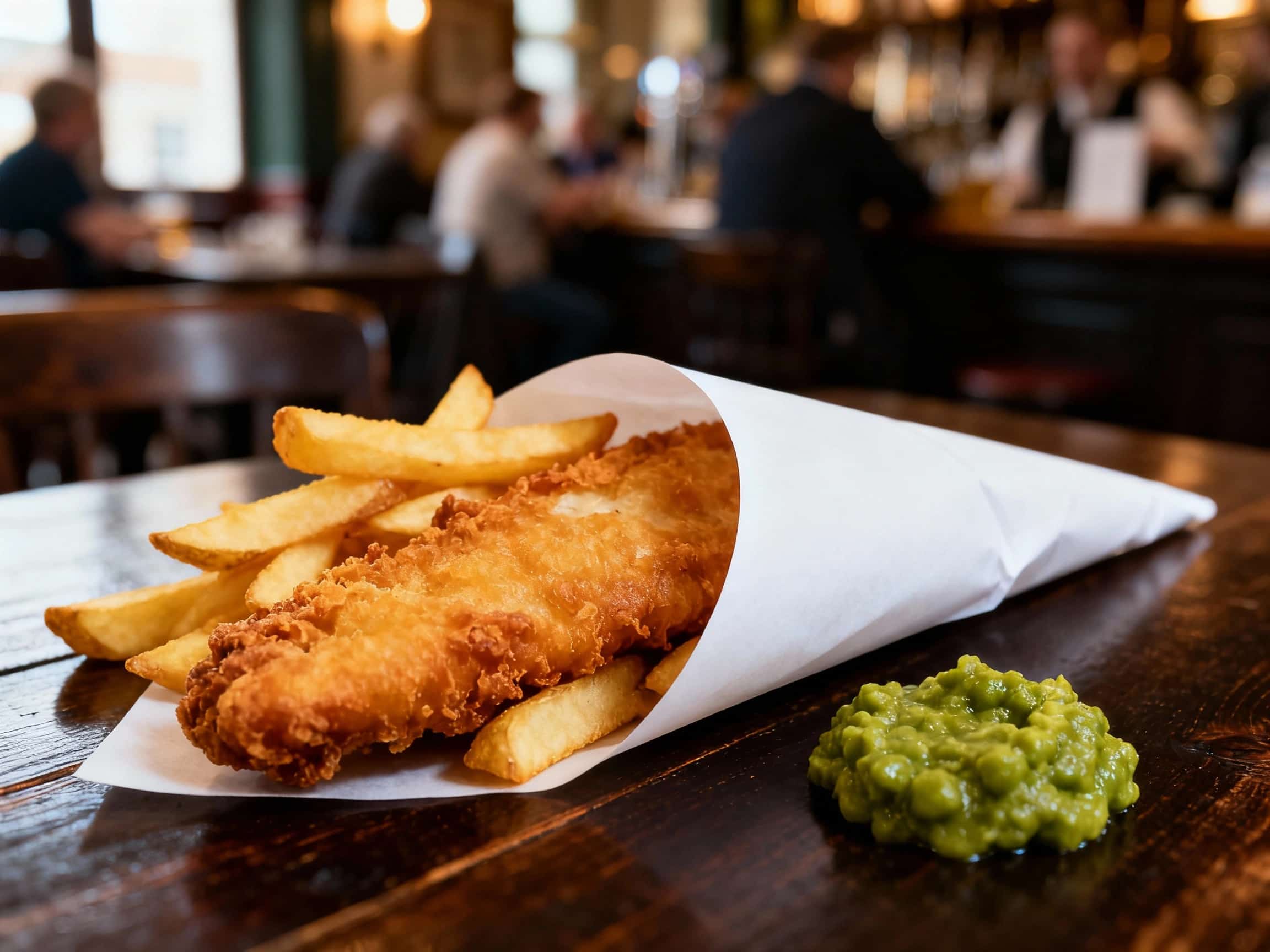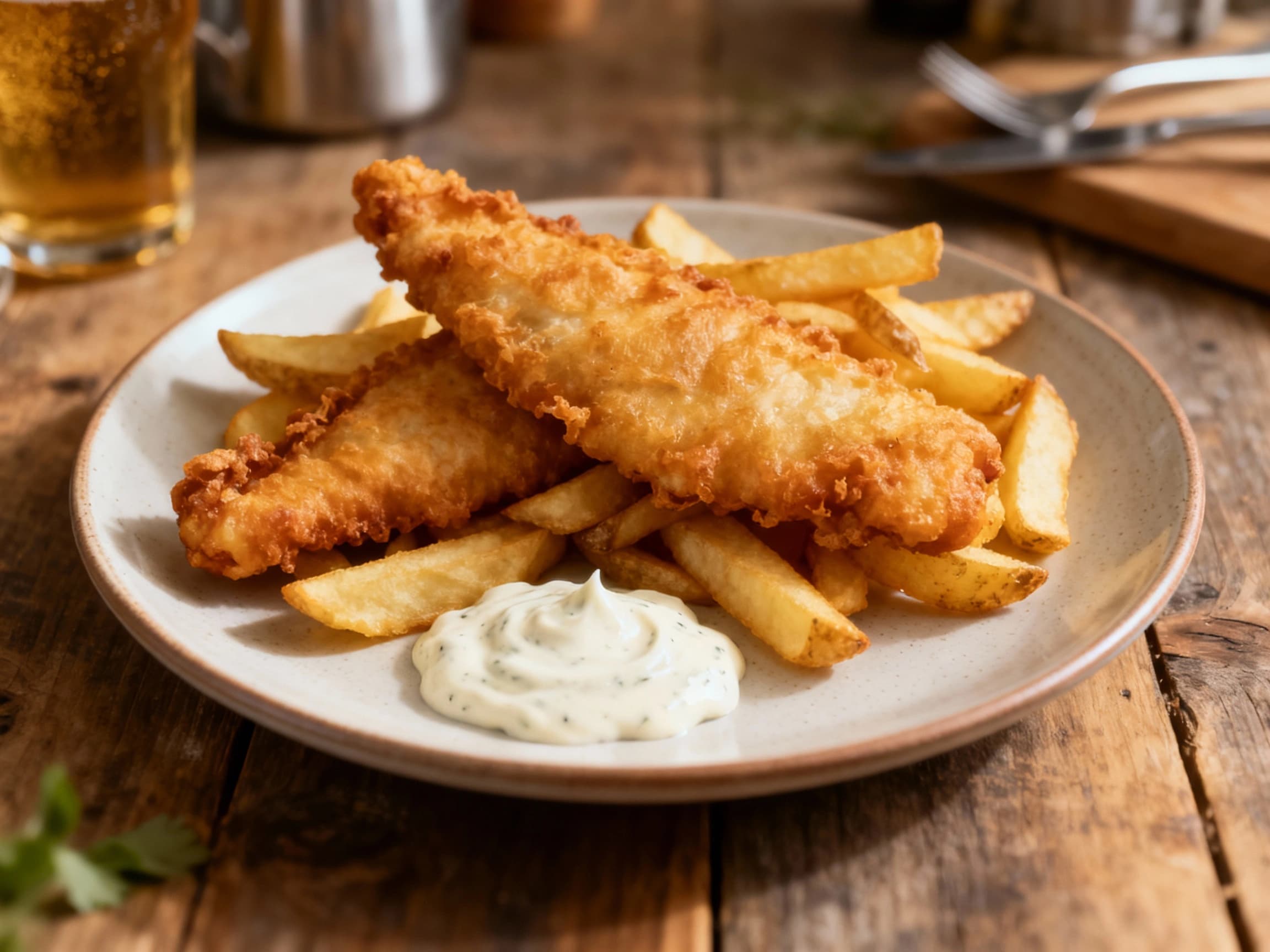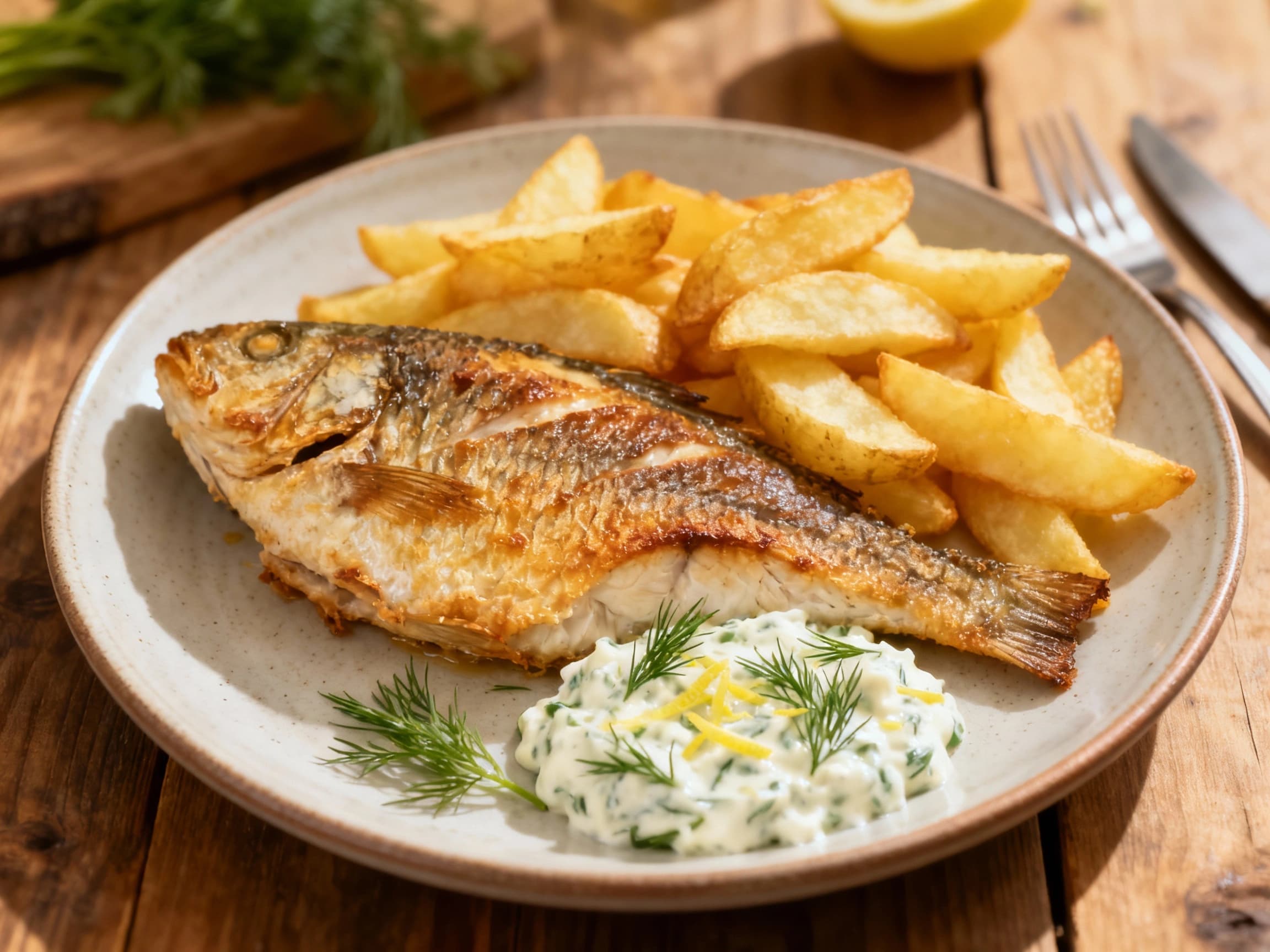
Fish and Chips
Fish and Chips
- Country
- United Kingdom
- Region
- England
- Recipes
- 3 Recipes
Origins & Characteristics of Fish and Chips
Fish and Chips, often hailed as the United Kingdom's national dish, is a popular fast food originating in Great Britain. Its exact origins are debated, but it emerged in the mid-19th century as a fusion of two distinct culinary traditions: the Jewish immigrant introduction of fried fish and the working-class staple of fried potatoes. Joseph Malin is often credited with opening the first fish and chip shop in London around 1860, while Giovanni Caldesi is said to have brought fried fish from Jewish Italy to Lancashire in the 1860s. The industrial revolution and the subsequent growth of railways played a crucial role in its spread, allowing for faster transportation of fish from coastal areas to inland towns. By the early 20th century, fish and chip shops were ubiquitous across the UK, becoming a vital source of sustenance for the working class, offering a cheap, filling, and nutritious meal. During World War II, fish and chips were among the few foods not rationed, further solidifying their place in the national identity and providing comfort and a sense of normalcy. Today, it remains a beloved takeaway meal, enjoyed by people of all ages and backgrounds. Prominent figures like Winston Churchill famously championed its importance to the nation's morale. The dish is deeply intertwined with coastal towns and the fishing industry, with specific regions developing their own variations in batter and accompaniments. It’s a symbol of British heritage, often enjoyed on Fridays and during seaside holidays.
History of Fish and Chips
Emergence of the first fish and chip shops in London and Lancashire.
Fish and chips become a widespread working-class staple.
Fish and chips remain unrationed during World War II, boosting morale.
Fish and chips are considered one of Britain's national dishes.


